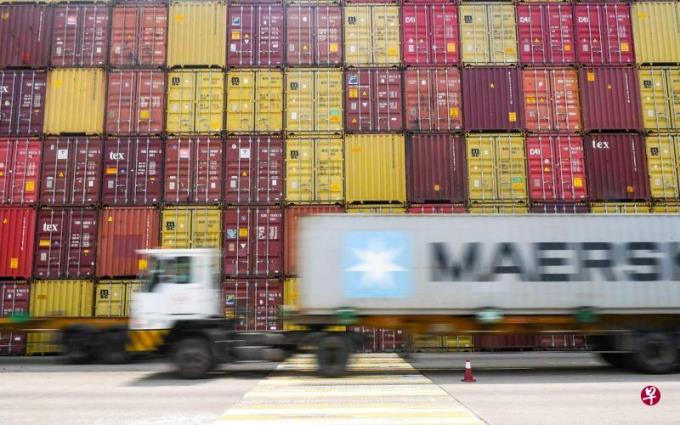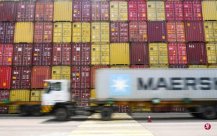
China ’s imports in April have shrunk sharply, and export growth slows down, which once again highlights the weak domestic demand under the global growth of the Chinese economy.Analysis believes that although the Chinese economy rebounds rapidly after the epidemic, I am afraid that it cannot drive the economy of other parts of the world.
The data released by the China Customs General Administration on Tuesday (May 9) shows that China exported 295.42 billion US dollars (about S $ 391.9 billion) in April this year, an increase of 8.5%year -on -yearCompared with, the growth rate slowed down significantly; imports of US $ 205.21 billion decreased by 7.9%year -on -year, which further extended a 1.4%decline in March.
Wang Jun, chief economist of Huatai Assets, analyzed in an interview with Lianhe Morning Post that the export rebound in China in March was a relatively "extreme" situation. At that timeThe bonus generated by the backlog order release, "Actually in April (data result) should also enjoy this dividend."
Xie Dongming, director of the Research Director of the Greater China of Singapore Overseas Chinese Bank, told Lianhe Zaobao that in China's export growth in April, cars are the core driving factor, "and" I believe that a large piece comes from new energy (car) ".
According to the data of the General Administration of Customs, from January to April, the export volume of automobiles (including chassis) increased by 120.3%year -on -year. The agency estimated that in April, the export volume of automobiles (including chassis) increased by 195.7%year -on -year.
Xie Dongming estimates that in April's 8.5%export growth, 5.5 percentage points are from car exit.In other words, exports of vehicles and accessories account for more than 70%of the total export growth.
However, for the prospects of trade exports, Wang Jun and Xie Dongming both studied and judged that from the global overall economic environment, it was not optimistic.
Wang Jun pointed out that the country, which has outstanding economic performance in the first four months, is difficult to replace Europe, America, Japan, and South Korea in terms of total economic performance, and Russia.
From January to April this year, the trade volume increased by 41.3%year -on -year to US $ 73.148 billion, of which exports to Russia increased by 67.2%.Sino -US trade volume was 217.924 billion US dollars in the same period, a year -on -year decrease of 11.2%.Among them, exports to the United States fell 14.3%.
The PMI (purchasing manager index) in the United States in April was 47.1, which was lower than 50 for six consecutive months.The two major Asian exports to South Korea and Vietnam have decreased by 14.2%and 17.2%, respectively, and the decline has further expanded from the previous month.
As for the further expansion of the import volume in China in April, Wang Jun believes that "it mainly reflects the lack of domestic demand", the real estate market has not recovered, and the May 1 tourism data can also see that the people's spending capacity has not reached expectations.
China's import decline indicates that the world economy will not rely too much on China's domestic growth engine.Xu Tianchen, an economic analyst of the economist think tank, said in an interview with Reuters that at the beginning of this year, most of the outside world believed that the import of imports after the re -opening of China will easily exceed the level of 2022, but now it seems that although the Chinese economy has rebounded rapidly after the crown disease epidemic, it has rebounded rapidly after the crown disease., But basically self -sufficient, other parts of the world have not felt it.
As China also exports some imported goods, the decline in imports will exacerbate the weakness of some major trading partners economies.China's semiconductor imports decreased by 15.3%, reflecting the scale of the demand for the re -export market of such components.
Affected by the decline in imported data, investors are frustrated, and both mainland China and Hong Kong stock markets fell on Tuesday.The closing of the Shanghai Stock 300 Index fell 0.9%, and the Shanghai Composite Index fell 1.1%.The Hong Kong Hang Seng Index fell 2.1%, and the Chinese enterprise index fell 2.4%, all of which set the worst record in the past two months.



